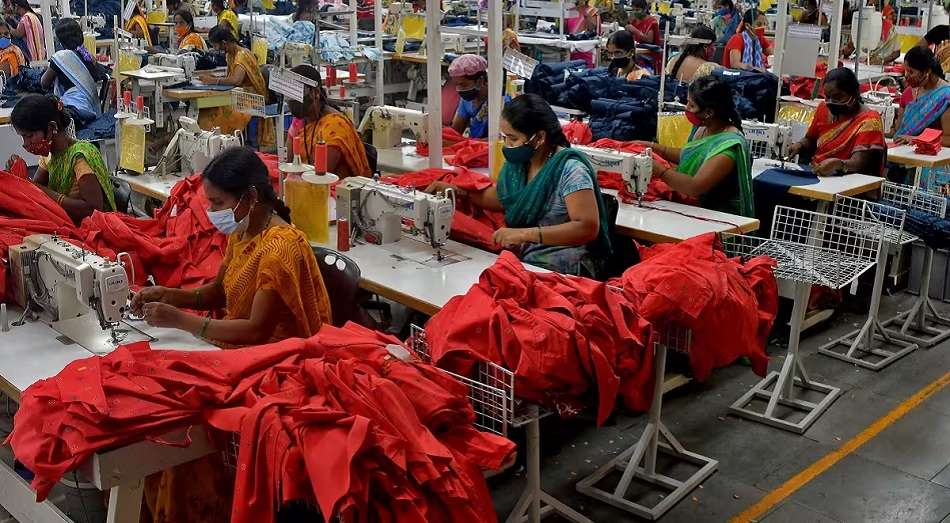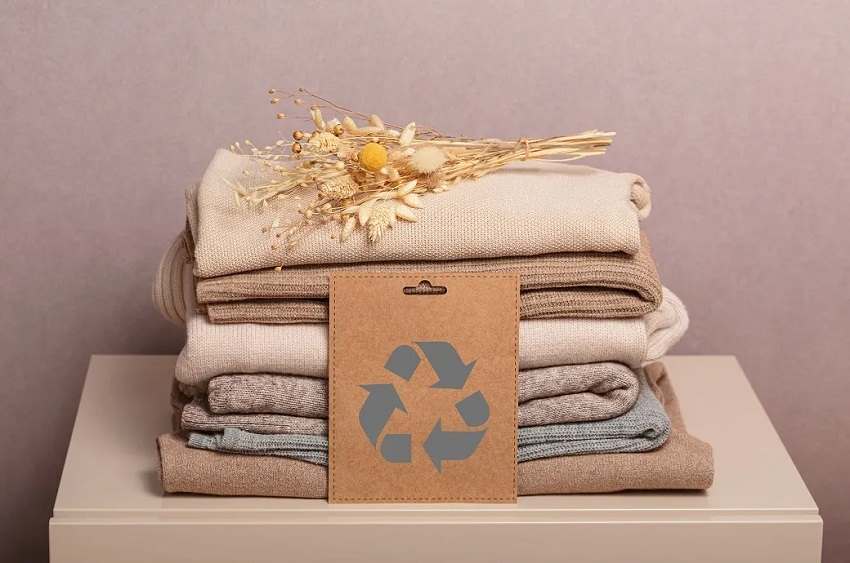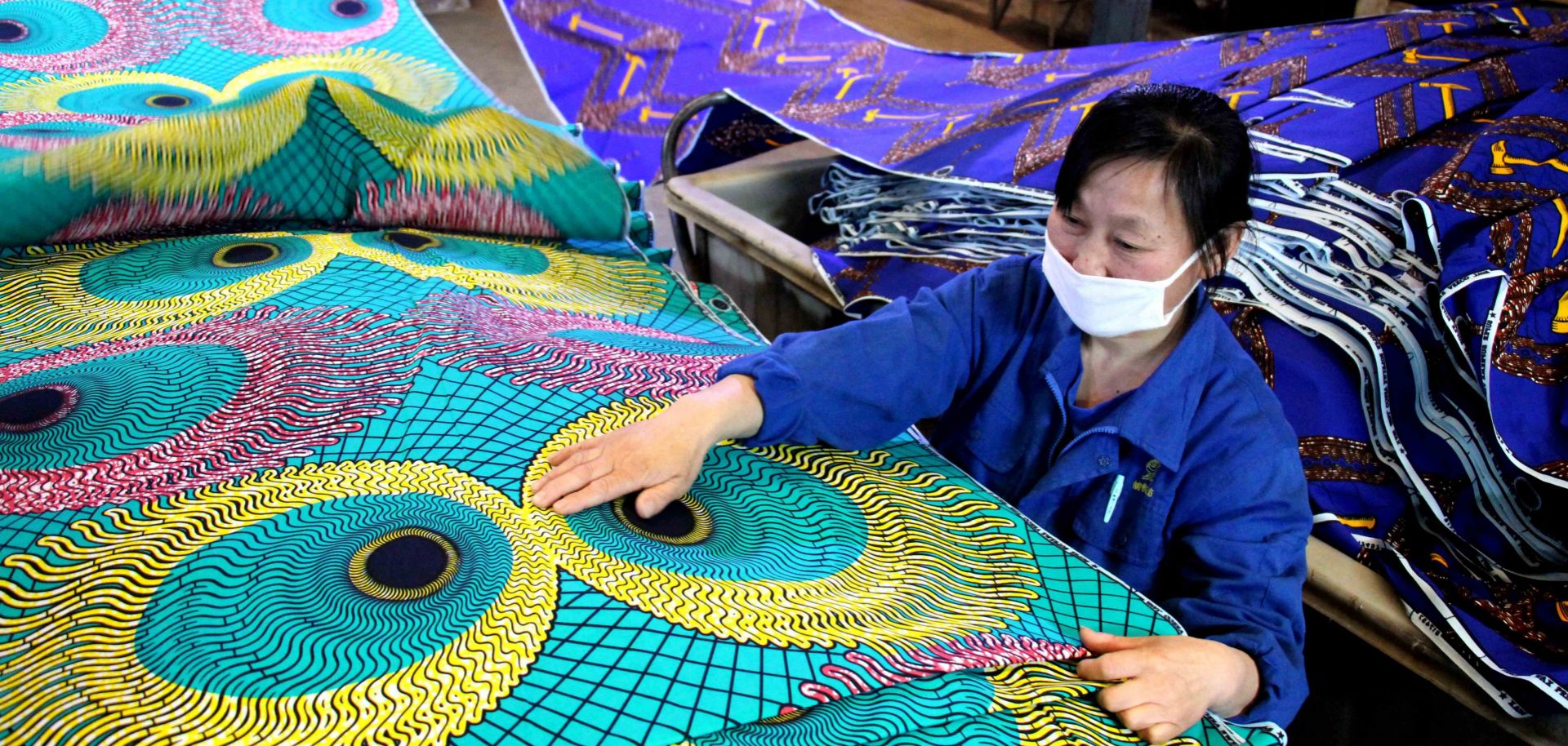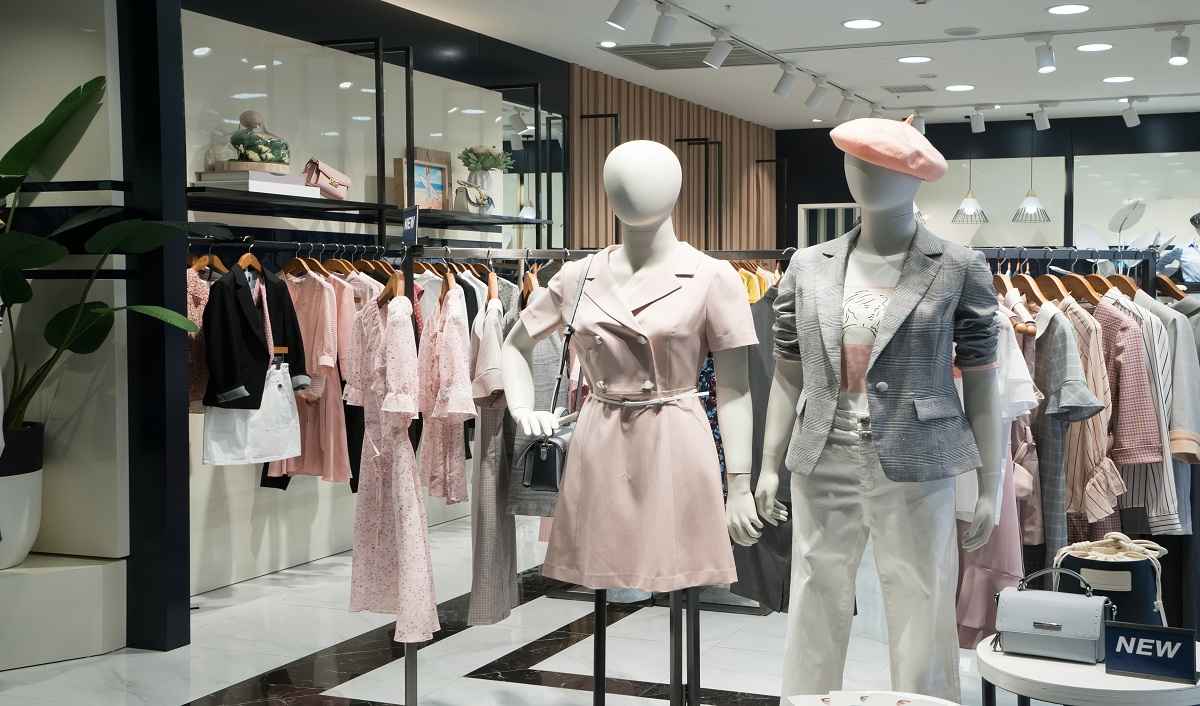FW
Bangladesh Denim Expo will be held from April 25 and 26. The aim is to promote Bangladesh as the prime destination for sourcing the latest designs of jeans and other denim products. It creates a platform for the country’s denim manufacturers to show their strength to global retailers. It enables foreign exhibitors to present the latest trends of denim.
The event will host seminars will be held on different issues. The panel discussions will allow members to share their experiences about the industry that would help Bangladeshi manufacturers go on to production of higher value added products. A total of 49 companies, of which 37 are foreign and 12 local, will participate in the exhibition.
The show will be hosted by Denim Expert, a jeans and denim product manufacturer. Currently, the denim industry in Bangladesh has 26 denim fabric manufacturers who produce around 360 million yards a year. However denim garment makers in the country need 720 million yards a year to cater to the export market. This means the country needs to import 60 per cent of denim fabric to meet the demand.
The global denim market is worth $60 billion dollars a year and of this Bangladesh earns $600 million dollars a year.
Japan International Apparel Machinery (JIAM) is being held from April 6 to 9. This trade show is home to a wide variety of products that includes textile machinery, clothing machinery, textile machine accessories, clothing and garment machine accessories, machine parts and tools.
JIAM 2016 will encompass the apparel industry and the textile industry as a whole in including non-apparel sectors and segments such as automotive, upholstery, outdoor and lifestyle goods and up-coming industrial textile goods. It will be showing the latest technologies and innovative new products related to the whole of the sewing industry, apparel manufacturing, and textile processing.
The event will showcase IT, both as information technology and as innovative technology. It will present both the latest hardware and software. Apparel and textile business associations, government agencies, machinery manufacturing groups, research and educational institutions, and other related organizations are among those attending.
JIAM 2016 is recognized as an indispensable platform for business, a key international trade fair for both exhibitors and visitors. It enables deepening and broadening of communications between exhibitors and trade visitors. It presents opportunities to discover innovative solutions, to encounter business partners. It is a platform to launch and promote new products and services.
www.jiam-show.com/en/
Spin Expo in France will be held on July 6 and 7, 2016. This is an exhibition for fibers, yarns for knitting and weaving, and flat-bed knitwear. About 75 exhibitors will have collections and product offerings from selected international top-level companies in the spinning and knitwear sectors.
The show is a catalyst for the textile and fashion industry and continues to be a driving force in moving both suppliers and buyers forward, urging them to bring newness in design and innovative technical applications to the market.
Spin Expo will present ahead-of-time collections from leading spinning mills and knitwear manufacturers addressing the active, knitwear, weaving, embroidery and lace sectors as well as any other outlet using yarns. It will feature autumn/winter 2017-18 collections together with best sellers from spring/summer 2017 and a synthesis of the best middle and high level collections, accompanied by trend presentations.
Products from international specialists need to come closer to the demands of their European buyers. The show exhibits suppliers in the best sophisticated way, where they can clearly demonstrate who they are and the products they develop. Buyers see Spin Expo as the primary place to find ideas, creativity and inspiration.
www.spinexpo.com/
The University of Georgia has partnered with a new national public-private consortium called Advanced Functional Fabrics of America, or AFFOA. The aim is to revolutionize the fiber and textiles industry through commercialization of highly functional, advanced fibers and textiles. The AFFOA partnership is built on recent breakthroughs in fiber materials and manufacturing processes that will soon allow them to design and manufacture fabrics that see, hear, sense, communicate, store and convert energy, regulate temperature, monitor health and change color.
The AFFOA mission is to transform traditional fibers, yarns and textiles manufacturing into a highly sophisticated functional system that will ensure America remains at the leading edge of fiber science. It brings together Fortune 500 companies, universities, fiber and textiles manufacturing facilities, state workforce development programs and federal agencies to co-invest in key technology areas that can encourage investment and production in the US.
The market for revolutionary fabrics range from apparel, health care and consumer products to defense, transportation, software and architectural and structural textiles UGA President Jere W Morehead said that the University of Georgia is proud to play a role in transforming fiber and textile manufacturing in America through their involvement in the AFFOA initiative. Participation in this outstanding public-private partnership is aligned perfectly with their heritage as a land-grant university and their strong commitment to advance economic development in the 21st century.
Members of the consortium include Fortune 500 companies such as Corning, DuPont, Nike and Intel, as well as small and medium-sized companies spanning the electronics, materials, apparel, transportation, fashion, defense, medical and consumer good manufacturing sectors. It also includes leaders of the fabric industry, such as Inman Mills, and leading research universities MIT, Cornell University, Drexel University, the University of Michigan, the University of California, Davis and the University of Texas at Austin.
The effort is funded by a $75 million federal commitment and cost share matches from AFFOA partners totaling $317 million. UGA will receive at least $5 million over five years, with an additional investment of state matching funds. UGA researchers who will play critical roles in AFFOA include Sergiy Minko, Georgia Power Professor of Polymers, Fibers and Textiles, College of Family and Consumer Sciences and professor, department of chemistry, Franklin College of Arts and Sciences amongst others.
"For China’s leading denim manufacturer, Prosperity Textiles softer denim remains the buzzword as the company is ranked among the top global suppliers. Founded in 1995, Prosperity Textile the company always stands out with its innovations. And now, the company has launched Series S1-S3 (‘S’ as in stretch) for better comfort. Four-way stretch is also making a splash by virtue of being ultra comfortable where some engineering has been done at the warp and weft level."

For China’s leading denim manufacturer, Prosperity Textiles softer denim remains the buzzword as the company is ranked among the top global suppliers. Founded in 1995, Prosperity Textile the company always stands out with its innovations. And now, the company has launched Series S1-S3 (‘S’ as in stretch) for better comfort. Four-way stretch is also making a splash by virtue of being ultra comfortable where some engineering has been done at the warp and weft level. Andy Zhong Marketing Director, Prosperity Textiles says, “For many wanting to experiment with innovations, it blends cotton, poly and spandex judiciously.” Zhong says they have been innovating and using brilliantly the blend of cotton, poly and spandex very judiciously.
Increasing capacity to boost business

The company is looking to expand in Vietnam. “Currently, we are ramping up denim capacity from existing roughly 60 million tons in China to 80 plus million tons. After the Vietnam unit is up and running, we are hoping for heightened exports capability with Vietnam joining TPP.” Zhong believes additional access to this market augurs well for Prosperity Denims. As of now all Asian demand comes for basics but Europe definitely is fashion forward. “Overall global demand is sluggish but our mill continues to grow well because of constant innovation,” explains Zhong.
He feels there are challenges to denims from athleisure. “So, in the short run, denim is trading down to this trend. But mid to long term denim still remains the favorite But fashion segment continues to ride on the bandwagon of innovation especially the way forward for small to midsize mills is to be disruptive else scaling up is the only solution,” opines Zhong.

Prosperity Textiles has 20 offices around the world, and sells all over the globe. However, 50 per cent of their sales come from Chinese customers. Speaking about latest trends in denim Zhong says, “White and black are in. While white is denims without indigo nonetheless it's not bleached. Knitted denims has a limitation of being lumpy hence, is doing well in a limited way in women’s category but in men's it has failed to make much inroads.”
Prosperity Textiles has experimented with woolen denim and has got an encouraging response though it's a limited segment but accentuates functionality in some ways, making it more elegant but expensive. Therefore, it's doing well only in selective markets like Europe.
The clampdown on Chinese polluting units is restricting overall production capacity in the country. Adoption of green technology is the way forward which is happening both out of voluntary action and increasing buyer pressure. And Zhong sums up, “Our group is conscious of the environmental impact; so green is the way to go,”
India is inching closer to a free trade agreement with Australia. India is very interested in the services sector in Australia and wants wider access for its professionals. There is significant potential to expand trade in services between India and Australia. An FTA could facilitate growth in services trade by reducing barriers faced by Australian service suppliers and by increasing regulatory transparency.
Australia is pushing for a tariff reduction in dairy, fresh fruit, pharma, meat and wines. On the other hand, India wants zero duty on textiles, auto parts and fresh fruits, including mangoes. A comprehensive agreement would assist in broadening the base of merchandise trade by addressing tariff barriers and behind the border restrictions on trade in goods.
India is the world’s largest democracy and is a market of 1.2 billion people. Its youthful population, diversified economy and growth trajectory present significant opportunity for Australian business, especially in the agriculture, energy, manufacturing, mining and services sectors.
The negotiations began in May 2011. There have been issues related to market access in services and goods, with an added complication on tariff reduction. While Australia wanted India to significantly lower or eliminate tariffs on several agricultural and industrial goods, India asked Australia to ease rules on temporary movement of skilled professionals and intra-company transfers.
The US Secretary of Defense Ash Carter has recently announced that Advanced Functional Fabrics of America (AFFOA) was selected to lead the Revolutionary Fibers & Textiles Manufacturing Innovation Institute (RFT-MII). The RFT-MII is a collaborative effort between government and the private sector to accelerate development of the next generation of highly functional textiles from both commercial and military perspective.
President Obama announced the formation of the RFT-MII on March 18, 2015 as a part of his National Network of Manufacturing Innovation (NNMI) initiative. The NNMI brings together industry, academia and federal partners to increase US manufacturing competitiveness, by promoting a robust and sustainable manufacturing research and development infrastructure.
Total funding is expected to be almost $320 million. The Department of Defense (DoD) has committed $75 million, a figure matched by almost $250 million in money and other in-kind contributions from the US textile industry and other sources.
The National Council of Textile Organizations (NCTO) has welcomed the announcement. And NCTO president Augustine Tantillo says they are pleased that the RFT-MII has gone from concept to reality. This investment in advanced manufacturing will add to the substantial ongoing efforts associated with innovation in fiber and textile science in the United States.
This long range investment will help the United States maintain its current position as the most innovative and technically advanced textile industry in the world, according to Tantillo. They expect it will ultimately spur jobs and investment in our sector while also making our military stronger. He also noted that domestic industry supplies more than 8,000 different textile products to our warfighters. There are 579,000 jobs in US fiber, textile and apparel production. The sector exports were $27.75 billion last year capital investment within industry reached $2 billion in 2014, an increase of 50 percent since 2009. NCTO represents domestic textile manufacturers and related industry.
Accord and Alliance have terminated and suspended their business with 83 garment units in Bangladesh on grounds of their failure to implement workplace safety measures and ensure a safe working environment.
Accord is a platform of more than 200 buyers, brands and trade unions from mostly the European Union. It terminated business with a total of 23 garment factories. Alliance is a grouping of 26 North American apparel companies, buyers and retailers. It suspended 60 factories from its compliant factory list.
Both Alliance and Accord are conducting fire, electrical and structural integrity assessment in their listed factories. Accord inspected some 1,600 factories while Alliance assessed some 800 units. Where corrective actions to eliminate safety hazards are identified, the factory is required to implement the corrective actions according to a schedule that is mandatory and time-bound.
If a supplier fails to implement the corrective action and cooperate in Accord or Alliance inspections, the supplier will receive notice that its business with Accord/Alliance signatory companies will be terminated. The garment factories with whom Accord and Alliance have severed business ties are now being scrutinised by the Bangladesh government. If they are indeed found unsafe, action will be taken.
The Made in America movement appears to be picking up momentum but the apparel industry is not reaping the rewards.US manufacturing in March has shown a slight improvement.
While generally improving global economic conditions have helped to counteract some of the strong dollar’s negative impact on exports, production volumes are low and backlogs of work have fallen again.
Sustained weakness across the US manufacturing sector means that overall growth through the first quarter has slowed to its lowest since late 2012. Subdued client spending patterns within the energy sector, ongoing pressure from the strong dollar and general uncertainty about the business outlook are cited as factors weighing on new order flows in March.
New orders and increased production means the US manufacturing sector registered overall growth in March for the first time since last August. While textile mills reported new orders rose last month, the same could not be said for the apparel, leather and allied products industry which recorded a drop, in addition to declining levels of production and employment.
The current period of decline has been extended to four out of the past five months. Signs of recovery are faint but there has been quiet and steady progress on the economic front.
The cotton market may be global, but international commodity merchants are showing a preference for cotton futures contracts that are local.
While trading of US cotton futures often tops 20,000 contracts per day, volumes in the world contract totalled just 38 contracts over the entire month of March. The world contract was a sellers’contract, as it gave them a wide choice of delivery points. It never made sense to a number of people in the industry, and the odds of any new contract becoming successful are not very high.
The new world contract reflects the global nature of production, permitting cotton grown in locales from West Africa to Brazil to be delivered to warehouses in Australia, Malaysia, Taiwan and the US. The contract would provide a new price discovery and risk management vehicle for the large volume of commercial cotton that moves from key origins to the multiple Asian consuming countries that dominate global exports and imports of cotton.
Cotton executives have been cautious ahead of the first delivery month in May. Among their concerns are that lower quality bales would be sold from countries where cotton bolls are still picked by hand.
Volumes in Intercontinental Exchange’s world cotton futures, backed by bales from nine countries, have evaporated since their debut five months ago. Four in five trading sessions saw no transactions in February and March.












